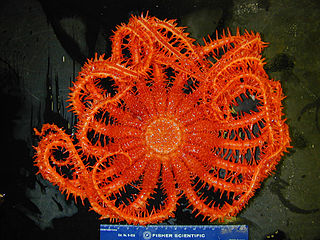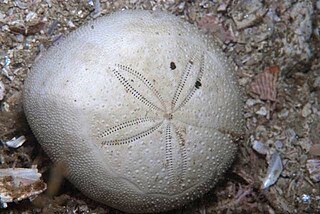
James Wood-Mason was an English zoologist. He was the director of the Indian Museum at Calcutta, after John Anderson. He collected marine animals and lepidoptera, but is best known for his work on two other groups of insects, phasmids and mantises.

Alfred William Alcock was a British physician, naturalist, and carcinologist.

Xanthidae is a family of crabs known as gorilla crabs, mud crabs, pebble crabs or rubble crabs. Xanthid crabs are often brightly coloured and are highly poisonous, containing toxins which are not destroyed by cooking and for which no antidote is known. The toxins are similar to the tetrodotoxin and saxitoxin produced by puffer fish, and may be produced by bacteria in the genus Vibrio living in symbiosis with the crabs, mostly V. alginolyticus and V. parahaemolyticus.

Sir Walter Galpin Alcock was an English organist and composer. He held a number of prominent positions as an organist and played at the coronations of three monarchs. He was professor of organ in the Royal College of Music, London.

The Astropectinidae are a family of sea stars in the order Paxillosida. Usually, these starfish live on the seabed and immerse themselves in soft sediment such as sand and mud.

Munidopsis is a genus of squat lobster. It is the second largest of all the genera of squat lobsters, after Munida, with over 200 species. Its members are mainly found on continental slopes and on abyssal plains. A few fossil species are also known, including specimens from the Campanian (Cretaceous).

Diogenes is a genus of hermit crabs.

Lovenia is a genus of sea urchin that is the sister taxon to Breynia and Echinocardium.

Calliaster is a genus of starfish in the family Goniasteridae

The Brisingidae are a family of starfish found only in the deep sea. They inhabit both the Atlantic and Pacific Oceans at abyssal depths, and also occur in the Southern Ocean and around Antarctica at slightly shallower depths.
Brisinga is a genus of starfish in the family Brisingidae. The species in this genus are primarily found in deep sea habitats.

The Interim Register of Marine and Nonmarine Genera (IRMNG) is a taxonomic database which attempts to cover published genus names for all domains of life, from 1758 in zoology up to the present, arranged in a single, internally consistent taxonomic hierarchy, for the benefit of Biodiversity Informatics initiatives plus general users of biodiversity (taxonomic) information. In addition to containing just over 500,000 published genus name instances as at May 2023, the database holds over 1.7 million species names, although this component of the data is not maintained in as current or complete state as the genus-level holdings. IRMNG can be queried online for access to the latest version of the dataset and is also made available as periodic snapshots or data dumps for import/upload into other systems as desired. The database was commenced in 2006 at the then CSIRO Division of Marine and Atmospheric Research in Australia and, since 2016, has been hosted at the Flanders Marine Institute (VLIZ) in Belgium.
Campanulinidae is a family of cnidarians belonging to the order Leptomedusae.

Asciodema is a genus of true bugs belonging to the family Miridae.

Cancellothyrididae is a family of brachiopods belonging to the order Terebratulida. It was first described by James Allan Thomson in 1926.

Babesiidae is a family of protists belonging to the order Piroplasmida.

Nymphaster is a genus of echinoderms belonging to the family Goniasteridae.
Paragonaster is a genus of echinoderms belonging to the family Pseudarchasteridae.

Spatagobrissus is a genus of echinoderms belonging to the family Maretiidae.

Pentacheles is a genus of crustaceans of the class Malacostraca.


















